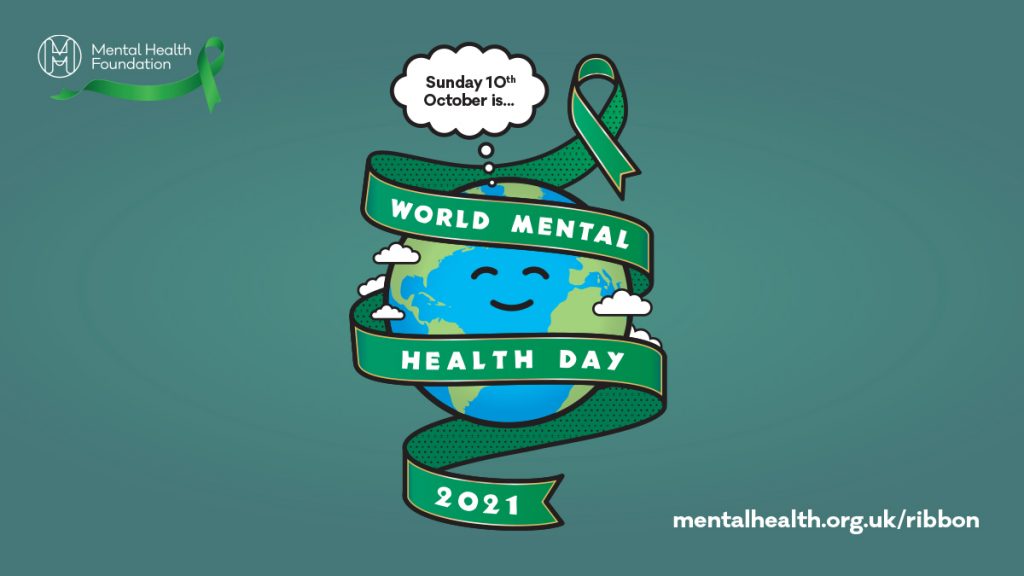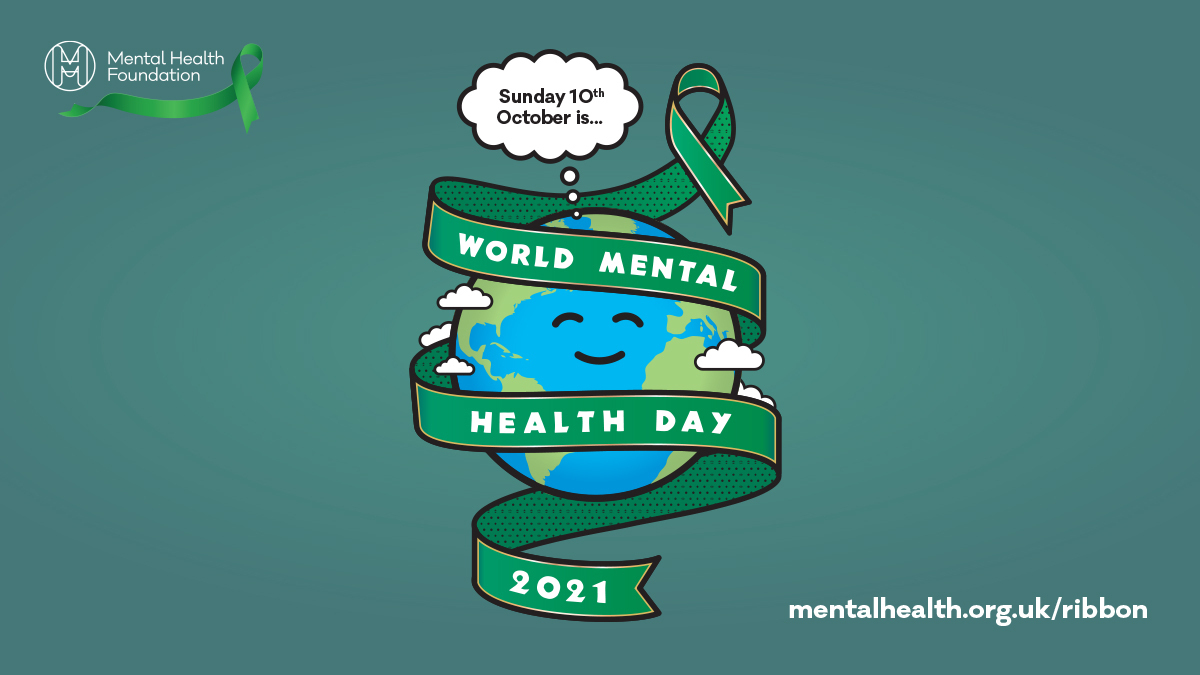From athletes to pop-stars, leading figures in the public eye have become increasingly open about mental health and how they deal with their wellbeing.
This summer, Simone Biles made headlines not for gymnastics but for her openness about her mental health.
Her honesty sparked public discussions surrounding mental health and the importance of looking after your mental wellbeing.
Biles’ decision to withdraw from the Olympics generated more social interactions than Meghan and Harry’s wedding , and google searches about mental health hit a record high for the year.
At Phoenix Learning, we want to carry on this discussion following this year’s World Mental Health Day with 9 tips that can help ensure you’re looking after your mental wellbeing.
1. Get a Good Nights Sleep
There is a close relationship between sleep and mental health; if you’re worried or stressed, this can significantly impact your mental health. Equally, if you struggle to get an adequate amount of sleep, this can begin to affect your mental health, and so the cycle continues.
For some, periods of poor mental health can cause overtiredness and long periods of sleep. For others, the exact opposite is true. The mental health charity, Mind, recommend that in both of these circumstances, it could be helpful to:
– Establish a routine
– Relax before you go to bed
– Fill in a sleep diary
– Limit screen time before bed
For more information on the relationship between sleep and mental health, visit Mind.
2. Make Your Bed
So, you’ve started to sort your sleeping pattern out; what’s next? As trivial as this may sound, making your bed every morning after you wake up is a great way to start the day.
Making your bed is one of the first tasks of the day you can complete successfully. Although it may not seem like much, it helps you put your best foot forward and start the day on the right track.

3. Have a Structured Day
You’ve already taken two big steps towards structuring your day by getting a good night’s sleep and making your bed; now, it’s time to plan the rest of it. Going to work, cooking, cleaning and looking after family members are but a few ways that each day becomes filled with tasks.
By organising your day, you can dedicate time to each task. In so doing, you can separate all the “stuff” that needs completing that day into single manageable jobs, giving you a more straightforward path to completing each one.
Apart from placing each day’s tasks into perspective, routines can reduce feelings of anxiety and promote healthy habits before work. For example, making a packed lunch with your favourite sandwich is an excellent way of establishing a healthy habit as it contributes to the sense of being in control throughout the day.
4. Eat Well
It is well known that eating well can have a significant impact on your mental wellbeing.
Having a balanced diet with plenty of fresh fruit and vegetables and drinking plenty of water are all great ways to look after your wellbeing.
A balanced diet has been linked to being more alert and thinking more clearly as well as promoting overall health. Whilst it may not be true that you are what you eat, it certainly is true that what you eat has a significant impact on your mental wellbeing.
5. Talk to Someone
Historically, one of the most challenging aspects of dealing with mental health has surrounded people’s unwillingness to vocalise how they are feeling; however, with celebrities like Simone Biles emphasising the importance of talking about how you are feeling, the stigma around mental health has well an truly begun to wash away.
So, whether it’s to a family member, a friend or someone at work, there is always someone you can speak to. reaching out to someone could be as easy as a quick text along the lines of;
“Hey, I’m not feeling like myself atm and have some things on my mind. Would you mind grabbing a cuppa with me so we could chat?”.

6. Make Time for Yourself
We understand that finding time for yourself can be difficult. You may have responsibilities at work or at home that means you don’t have much time to yourself. However, making time for yourself is so important and can help you destress in so many ways.
If you don’t have the chance to take a significant amount of time to yourself, we have suggested a few ways to benefit from mini-breaks that don’t involve aimlessly scrolling through your phone:
– Meditation and breathing exercises
– Stretching
– Having a healthy snack
– Reading something interesting
– Checking in with a friend
7. Drink Sensibly
We’ve all been there. We aren’t feeling goof about ourselves, so we have a few drinks to feel better. Why? Well, alcohol can cause temporary feelings of happiness and a sense of relief from whatever makes us feel bad.
However, temporary relief is often replaced by lethargy and anxiety the next day. These negative feelings can have a spillover effect on other aspects of our day.
As we have already discussed, a great way to start the day is to make your bed; similarly, preparing a packed lunch is another way to affect control over your day and promote a healthy lifestyle. these tasks will become much more challenging if you feel tired and anxious.
Like anything else, moderation is key and recognising this will help you maintain your mental wellbeing!
8. Do Something You Love
Doing something you love and losing yourself in an activity can profoundly affect your mental health. Going for a run, reading a good book, baking or gardening are but a few examples that can help you unwind, and gain a better perspective of a situation and help you destress.
So, whether you have a chance to do this every day or once a week, making sure you get to enjoy an activity you love doing is a sure way of looking after your mental health.

9. Learn Something New
The mental health charity, Mind, recommends continues learning as a way towards a state of positive mental wellbeing. Indeed, learning can be a great way of boosting self-esteem and encouraging social interaction. Learning allows you to set goals, instilling a sense of order whilst providing you opportunities to succeed.
Learning is a great strategy for enacting a positive state of mind because it can encourage positive habits and promote self-growth and self-development.
Whilst this list is certainly not exhaustive, implementing these steps into your routine would be a great start. So whether you grab that cuppa with a friend, put your head on the pillow a little bit earlier or simply take a bit of time to yourself to listen to your favourite album and relax, we hope that whatever it is you choose to do, it helps you move in the right direction.

By Tom Coyne
14/10/2021
Discover More
Categories
Contact Us
Read More From Phoenix Learning
How To Make The Most Out Of Your Linkedin Profile
The jobs market is changing. The days of walking into a business and handing in your CV is slowly fading...
Read More ➤Equality & Diversity: Supporting Learning Difficulties
How can employers cultivate a workplace of equity and diversity? We wanted to illustrate ways an employer can support employees...
Read More ➤The Toxicity of Hustle Culture: Why Balance is Key
When Covid haltered standard living, we were told to stay productive, keep our spirits high, find a new 'hustle'. This...
Read More ➤






